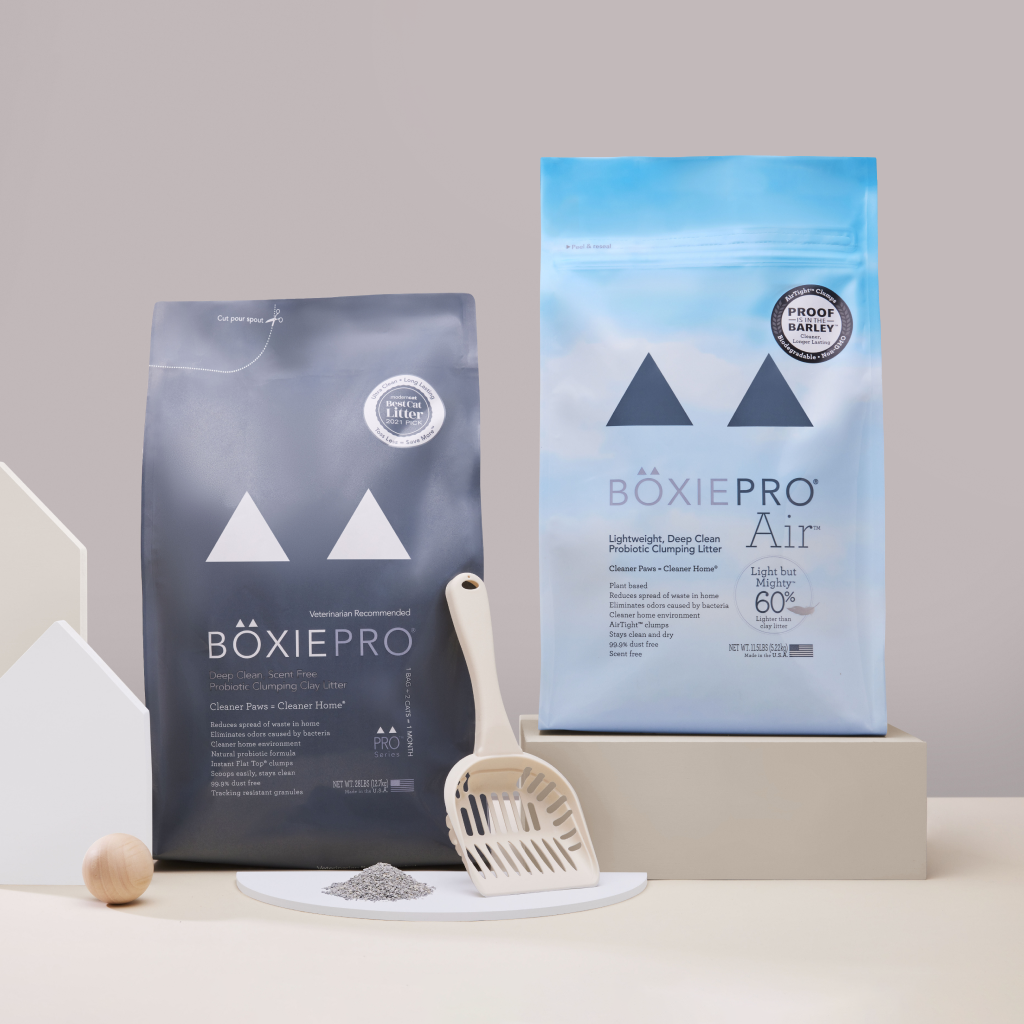Lightweight Cat Litter Benefits You Didn’t Know About

Carrying heavy cat litter around the house is nobody’s idea of fun.
If you’ve ever lugged one of those bulky bags from the store, only to spill it halfway through your living room, you already know the pain.
But there’s a better option that more and more cat owners are switching to: lightweight cat litter.
Why make the change?
Simple—it’s easier on your back, better for your cat’s lungs, and surprisingly great at keeping your home smelling clean.
Let’s break down what makes lightweight litter a great choice.
Key Takeaways
-
Lightweight cat litter is easier to carry, store, and pour—no more straining your back
-
It often creates less dust, which helps improve air quality for you and your cat
-
Many lightweight options are made from eco-friendly, biodegradable materials
-
It absorbs odor fast, keeping your home fresher for longer
-
Switching is simple with a slow, step-by-step transition
What Makes Cat Litter “Lightweight”?
Traditional clay-based litter is heavy because it’s made from dense minerals like bentonite.
Lightweight litter uses lighter natural materials like:
-
Corn
-
Recycled paper
-
Wheat
-
Wood fibers
-
Silica crystals
This not only reduces weight but makes it easier to carry and clean.
You’ll notice it the first time you lift the bag.
Products like Boxiecat's Lightweight Plant-Based Litter weigh significantly less—but still deliver powerful odor control and clumping.
Lighter litter, less hassle.
Why Pet Owners Are Ditching Heavy Litter for Lightweight
Here’s why so many cat owners are switching:
Less Dust = Better Breathing
Traditional clay litters release a cloud of dust when poured or scooped.
That dust gets everywhere—and it’s not great for your lungs or your cat’s.
Lightweight formulas often create little to no dust, improving indoor air quality.
Better Odor Control
No one likes a stinky litter box.
Natural materials like corn or plant fibers are ultra-absorbent.
They trap odors quickly and naturally—without fake perfumes your cat might hate.
Gentler on the Environment
Most clay litters aren’t biodegradable and can sit in landfills for years.
Plant-based litter, like Boxiecat's, breaks down naturally and is more eco-friendly.
If you're trying to live greener, this swap makes a real difference.
Easier on Your Wallet Long-Term
Sure, some lightweight litters cost more upfront.
But they often last longer and require fewer full litter changes—so you save over time.
Lightweight Litter vs Traditional Clay Litter
|
Feature |
Lightweight Litter |
Traditional Clay Litter |
|
Weight |
Light and easy to carry |
Heavy and bulky |
|
Odor Control |
Excellent (especially plant-based) |
Often needs added perfumes |
|
Dust Levels |
Low to none |
High (can irritate lungs) |
|
Eco-Friendly |
Biodegradable |
Not biodegradable |
|
Price Over Time |
Cost-efficient |
Frequent replacements needed |
Winner? Lightweight litter comes out ahead in every key area.
How to Choose the Best Lightweight Cat Litter
Ready to try it?
Here’s what to look for:
✅ Natural Ingredients
Plant-based litters are best for cats with sensitive paws or allergies.
Look for options made with:
-
Corn
-
Wheat
-
Wood pulp
-
Recycled paper
✅ Clumping Strength
Great clumping = easier scooping and less waste.
Avoid litters that fall apart or leave mushy messes.
✅ Low or No Dust
Your cat breathes close to the litter box.
Dust-free litter formulas reduce the risk of sneezing or respiratory stress—for both of you.
✅ No Strong Perfumes
Cats have super-sensitive noses.
Unscented or naturally fresh-smelling litters are usually preferred.
Boxiecat’s Unscented Lightweight Litter is a solid choice here.
→ Check out our Ultimate Guide to Choosing the Right Cat Litter
Helping Your Cat Adjust to New Litter
Cats don’t always love change.
Here’s how to make the switch smooth:
-
Start slow.
Mix a small amount of the new lightweight litter into your cat’s current litter. -
Increase gradually.
Over 7–10 days, raise the ratio until it’s 100% lightweight litter. -
Watch your cat.
If they hesitate or stop using the box, slow down the switch. -
Keep the box extra clean.
Cats will be more accepting if the new litter box smells fresh and inviting.
FAQs About Lightweight Cat Litter
Is lightweight litter safe for kittens?
Yes—just be sure to pick one that’s unscented, natural, and labeled as safe for young cats.
Does lightweight litter really control odor better?
In many cases, yes.
Plant-based materials trap smells quickly and naturally—no need for strong perfumes.
How often should I change lightweight litter?
Scoop daily.
Replace all the litter every 2–4 weeks, depending on the number of cats and the brand you’re using.
Can lightweight litter be flushed?
Most shouldn’t be flushed—check the packaging.
Even biodegradable doesn’t always mean sewer-safe.
Making the Switch- Easier for You, Better for Your Cat
Switching to lightweight cat litter isn’t just about convenience—it’s a smart, healthy choice for your whole home.
You’ll have fewer aches from carrying heavy bags.
Your cat will breathe easier.
And your space will stay fresher longer.
Products like Boxiecat’s Unscented Lightweight Plant-Based Litter let you care for your cat while being kind to the planet.
Lightweight cat litter isn’t a trend—it’s the future of pet care.





